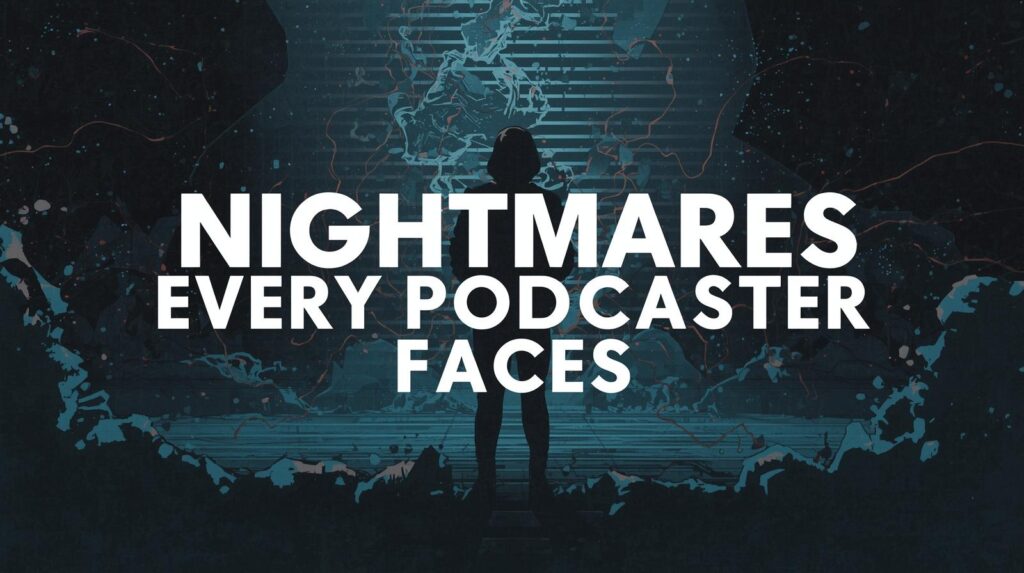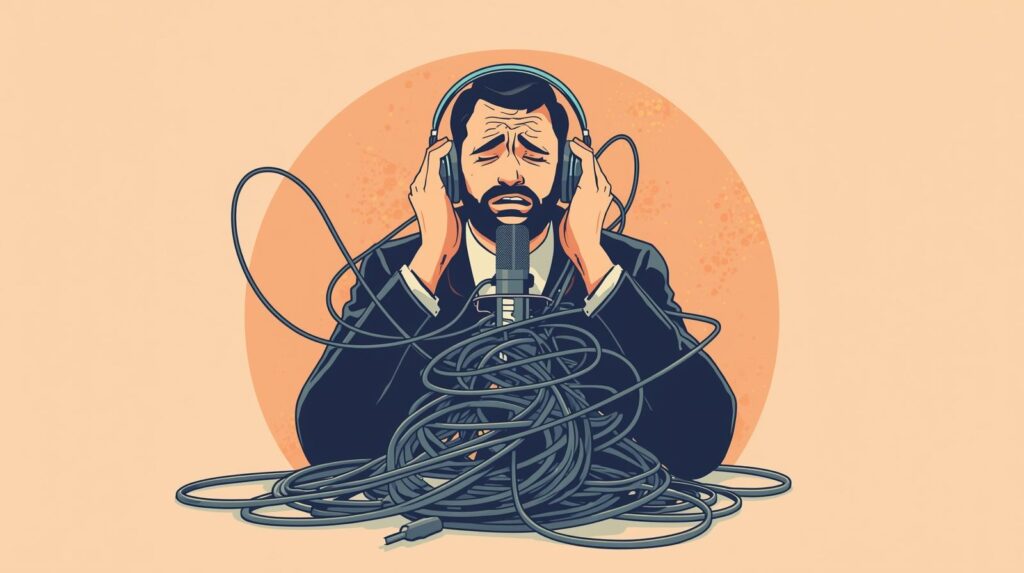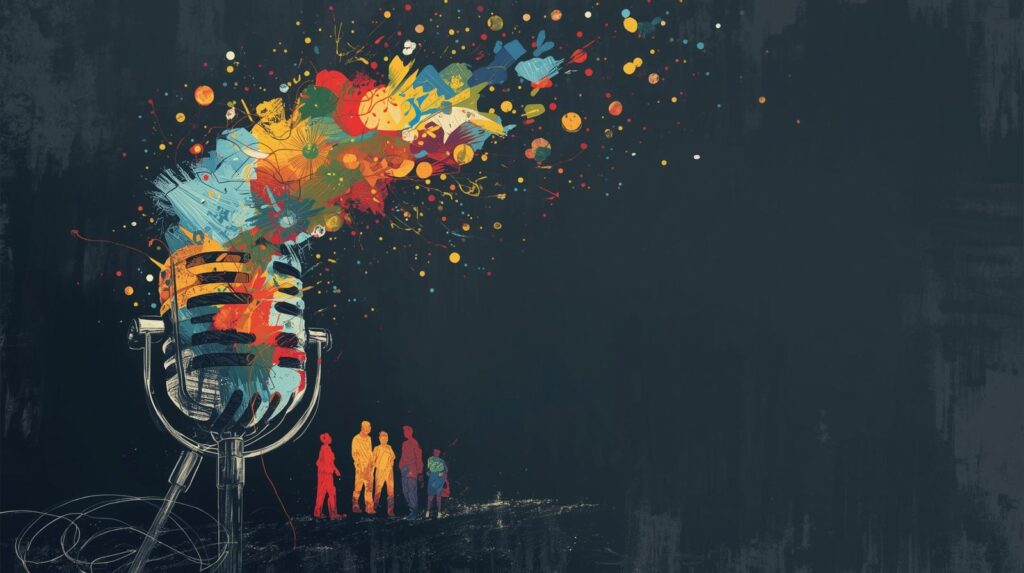Podcasting is exciting, creative, and fulfilling—but let’s be honest: the tech side can feel like a horror movie. Imagine spending hours recording, only to discover your file is corrupted. Or sitting down for a remote interview, only for the internet to drop right as your guest delivers a golden soundbite. If you’ve ever felt that gut-wrenching panic, you’re not alone. Every podcaster, from beginners to veterans, faces tech nightmares that threaten to derail episodes.
The good news? Every one of these problems has a fix. Once you know what to look for, you’ll be prepared to handle the chaos with confidence. In this post, we’ll cover 17 common podcasting tech problems and give you practical, quick solutions you can implement immediately. No more sleepless nights over lost files or bad audio—let’s get your podcast back on track.
1. Your Recording Disappears Into Thin Air
Losing a recording is every podcaster’s nightmare. Whether it’s software crashing or forgetting to hit record, the result is heartbreaking.
Why It Happens: Glitches, improper saving, or human error.
Quick Fix:
- Always double-check that recording has started.
- Use backup software (e.g., Zoom, Riverside, or a portable recorder).
- Enable auto-save if your platform offers it.
2. Recording Software Crashes Mid-Session
You’re mid-interview when suddenly your software freezes or shuts down.
Why It Happens: Outdated software, memory overload, or incompatible plugins.
Quick Fix:
- Keep software updated.
- Close background apps to free memory.
- Record locally and in the cloud simultaneously for backup.
3. Echoey, “Cave-Like” Audio
Your voice sounds like it was recorded in a bathroom. Not a good listener experience.
Why It Happens: Recording in untreated rooms with hard surfaces.
Quick Fix:
- Record in smaller, carpeted rooms.
- Hang blankets or foam panels.
- Use directional microphones to reduce reverb.
4. Background Noise Ruins the Episode
Dogs barking, fans humming, or cars honking bleed into your recording.
Why It Happens: Sensitive mics pick up environmental noise.
Quick Fix:
- Use noise-reduction plugins.
- Record at quieter times.
- Invest in a dynamic microphone.
5. Guest’s Mic Sounds Terrible
Your guest’s audio is muffled, distorted, or overly quiet.
Why It Happens: Guests use built-in laptop mics or low-quality equipment.
Quick Fix:
- Politely ask them to use headphones and an external mic.
- Provide a simple “guest setup guide.”
- Run a quick pre-interview sound check.
6. Internet Drops During a Remote Interview
You lose connection, and the conversation grinds to a halt.
Why It Happens: Wi-Fi instability, bandwidth overload, or ISP issues.
Quick Fix:
- Use wired Ethernet instead of Wi-Fi.
- Ask guests to pause large downloads/streams.
- Record locally on each side for a backup.
7. File Corruption or Missing Audio
Your audio file won’t open, or chunks of the recording are gone.
Why It Happens: Crashes during saving or corrupted hard drives.
Quick Fix:
- Save multiple copies (local + cloud).
- Use reliable software with recovery features.
- Invest in an external backup drive.
8. Episodes Won’t Upload to Your Host
You try to upload but get endless error messages.
Why It Happens: Large file sizes, poor internet, or host outages.
Quick Fix:
- Compress audio files without losing quality.
- Export in recommended formats (e.g., MP3, 128 kbps).
- Check host’s server status and retry later.
9. Missing Metadata and Tags
Your episode is live, but titles, descriptions, or artwork are missing.
Why It Happens: Skipped steps in the upload process.
Quick Fix:
- Create a checklist for every upload.
- Use ID3 tag editors to embed metadata.
- Automate templates in your hosting platform.
10. Low Volume or Inconsistent Levels
One speaker is whispering while another booms.
Why It Happens: Different mic techniques and unbalanced mixing.
Quick Fix:
- Normalize audio in your DAW.
- Use compression to even out levels.
- Do a sound check before recording.
11. Editing Takes Forever
Hours vanish into trimming ums, ahs, and silences.
Why It Happens: Manual editing without shortcuts or automation.
Quick Fix:
- Use AI-assisted tools (e.g., Descript, Auphonic).
- Create templates for intros/outros.
- Batch edit episodes in one sitting.
12. Losing Your Podcast RSS Feed Login
Without your RSS feed access, you can’t update episodes.
Why It Happens: Lost passwords or switching platforms.
Quick Fix:
- Store logins securely with a password manager.
- Keep backup copies of RSS credentials.
- Contact your host immediately if locked out.
13. Scheduling Errors with Recording Platforms
Your guest shows up, but your booking software failed to sync.
Why It Happens: Calendar sync issues or human error.
Quick Fix:
- Double-confirm bookings via email.
- Use tools like Calendly or TidyCal with reminders.
- Keep a manual backup schedule.
14. Overheating Laptop During Recording
Your computer sounds like a jet engine—or shuts down mid-session.
Why It Happens: Intensive editing software or poor ventilation.
Quick Fix:
- Record in a cool room.
- Use cooling pads or external fans.
- Close background apps to reduce CPU load.
15. Running Out of Storage Space
Recordings suddenly stop because your disk is full.
Why It Happens: Large audio/video files quickly eat storage.
Quick Fix:
- Regularly offload old files to external drives.
- Use cloud storage for archiving.
- Monitor available space before recording.
16. Guests Forgetting Headphones (Causing Feedback)
Audio bleeds into the mic, creating echo and feedback.
Why It Happens: Guests rely on laptop speakers.
Quick Fix:
- Ask guests to wear headphones in your prep email.
- Keep a spare pair ready for in-person interviews.
- Use echo cancellation tools if unavoidable.
17. Mixing Music Too Loud Under Voice
Your voice is drowned out by theme music.
Why It Happens: Poor audio mixing balance.
Quick Fix:
- Keep music volume around -18 to -20 dB lower than voice.
- Use sidechain compression to auto-duck music.
- Always preview on different devices (headphones, speakers).
Conclusion
Podcasting tech problems are frustrating—but they’re also universal. Every podcaster has horror stories of lost files, terrible audio, or failed uploads. The key is not to avoid them entirely (you can’t), but to be ready with quick fixes that turn panic into progress. With preparation, backups, and a little patience, you’ll not only overcome these nightmares—you’ll grow as a podcaster.
Remember: every challenge is a sign you’re creating something worth sharing. Don’t let a glitch stop your voice. Keep recording, keep publishing, and keep learning. Your audience is waiting.


